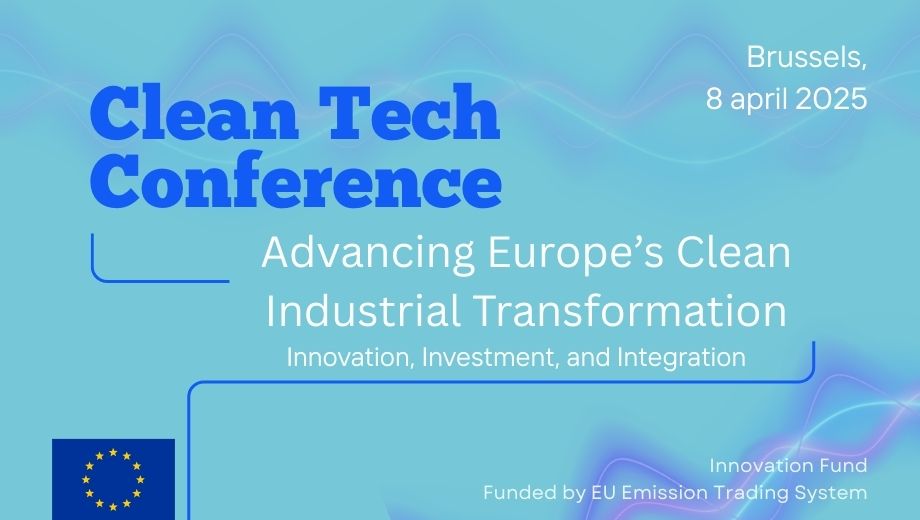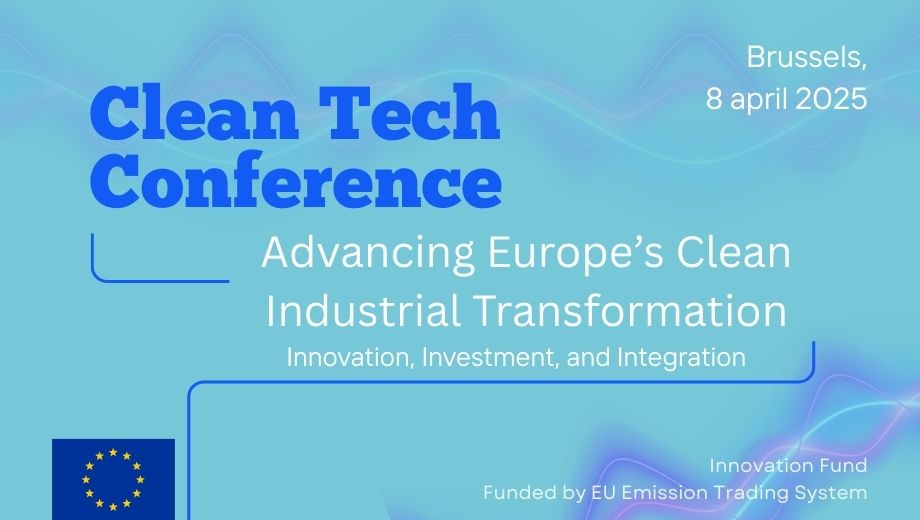
Europe is intensifying its commitment to becoming carbon neutral by 2050, viewing this not merely as an environmental imperative but as a comprehensive industrial transformation driven by innovation, collaboration and strategic investment. At the heart of this transformation, pivotal was the discussion held in Brussels at the Cleantech 2025 Conference. The event brought together high-level innovators all aiming to build a more sustainable Europe.
In the opening speech of the conference, European Commission President Ursula von der Leyen, highlighted the EU’s progress towards a more sustainable and competitive industry. Central priorities are simplifying regulations, reducing bureaucratic burdens- especially for SMEs and the establishing an industrial decarbonization bank to scale up innovative companies into big firms.
The conference later proceeded with the intervention of Kurt Venderberhe, Director-General at the European Commission for Climate Action, emphasising the need to make Europe carbon neutral and the critical importance of a robust system of investment funds as a key lever to help the industry to move forward towards more sustainable models.
While technological innovation in cleantech is making progress, the need for these solutions to be scaled across Europe and deploying it globally is paramount also to boost Europe’s competitiveness. As the executive vice president of Europe operations Schneider electric, Gwenaelle Avice Huet stressed, addressing the scarcity of resources redirecting the billions spent on energy imports towards domestic investments in Europe is a key priority. The EIB Investment Report was presented as a valuable tool for understanding investment trends and guiding future strategic funding decisions.
Central to the conference was also the concept of technology neutrality, which refers to the idea of not favouring any specific technology but allowing market forces to determine the best solutions. This concept was closely linked to the need to strengthen collaboration efforts and supportive regulations. In this context, the clean industrial deal was framed as a strategy that requires both speed and a unified EU approach, leveraging the strength of the internal market.
Building on this broader discussion, a brief ‘Lightning talk’ session then focused on emphasising the crucial role of the EU innovation funds as a key enabler of breakthrough technologies. The funds support groundbreaking projects and new technologies in several sectors including clean hydrogen production, hybrid glass manufacturing and deep geothermal energy. These projects, involving a large group of professional business leaders and engineers working on complex solutions, demonstrated the real-world potential of European cleantech to drive new industrial solutions. Furthermore, the idea that decarbonisation is not a burden but a driver for investment and future prosperity resonated throughout the whole discussions.
Despite the promising developments, several challenges were identified across these projects. Among them was stressed the need for a strong and clear long-term vision from the EU, as it is crucial to guide project development and prevent first movers from being penalized. Equally important is the establishment of a clear and smart regulatory framework, which should act as an enabler of innovation by supporting the creation of sustainable business models, rather than a barrier to progress.
The conference concluded with clear messages: the need for regulatory stability and the urgency of a cross- border policy alignment; strategic use of Europe’s comparative advantage; public and private investments synergy; collaborative framework between AI and cleantech to unlock new efficiencies and embracing a smart, open approach to global market.
Europe’s clean industrial transformation is therefore a strategic opportunity to redefine Europe’s global competitiveness and drive sustainable growth. With bold investment and a unified regulatory approach Europe can thrive. As echoed in the cleantech conference of 2025 << cleantech innovation industry is not a question of “if” but of “when” – and the time is now>>.
